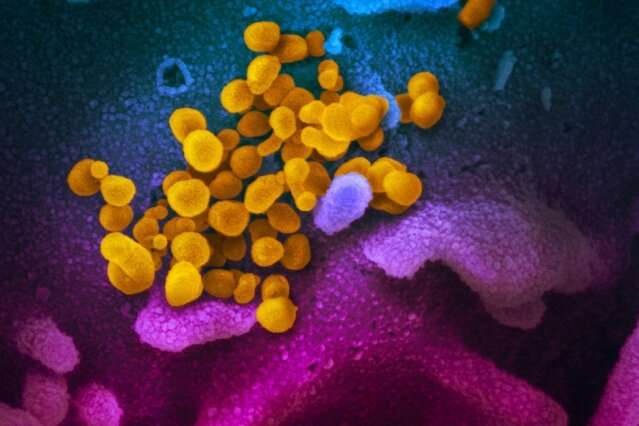Researchers work to build a molecular Trojan horse to battle COVID-19

A pair of Vanderbilt University researchers are focusing on proteins that may lead to an inside track on battling COVID-19. Envelope proteins—small membrane proteins—have an important yet unknown role in the development and virulence of multiple coronaviruses, including SARS-CoV-2.
"We know this is an important protein because its removal impedes the virus' ability to infect other cells, but its effect is difficult to couple with its function," said graduate student James Hutchison. "Between being aware of its importance and why it is important is a huge canyon that has yet to be crossed."
Since March, Hutchison and Charles R. Sanders, professor of biochemistry and associate dean for research, have focused their work on the full protein to understand how it gets trafficked into a cell by adding a fluorescent label. By doing that, the researchers can see how the protein interacts with the virus. With their collaborators, Sanders and Hutchison are working on altering the novel coronavirus' envelope protein—S2-E—to turn it into a Trojan horse against COVID-19.
"The idea is that a 'weaponized' E protein will be incorporated into viral particles undetected and disrupt the replication-supportive function of a regular E protein, to inhibit viral replication or assembly," Sanders said. This approach can kill the virus during assembly, thus ending its ability to infect other cells.
So far, the researchers have expressed and purified the protein, then confirmed its pathway through the lipid cell membrane. They first showed that the Trojan horse works outside of a living organism. They then demonstrated that the same approach works in the membranes of living human cells—without harming the cells.
This work has a wider scope than just the current SARS-CoV-2 pandemic, as E proteins are deployed across coronaviruses. "There are important parts of the protein that don't change across viruses," Hutchison said. "It implies those proteins are doing the same thing no matter which coronavirus it is. Whatever we discover now may wind up being adaptable to limiting future viral outbreaks."

















